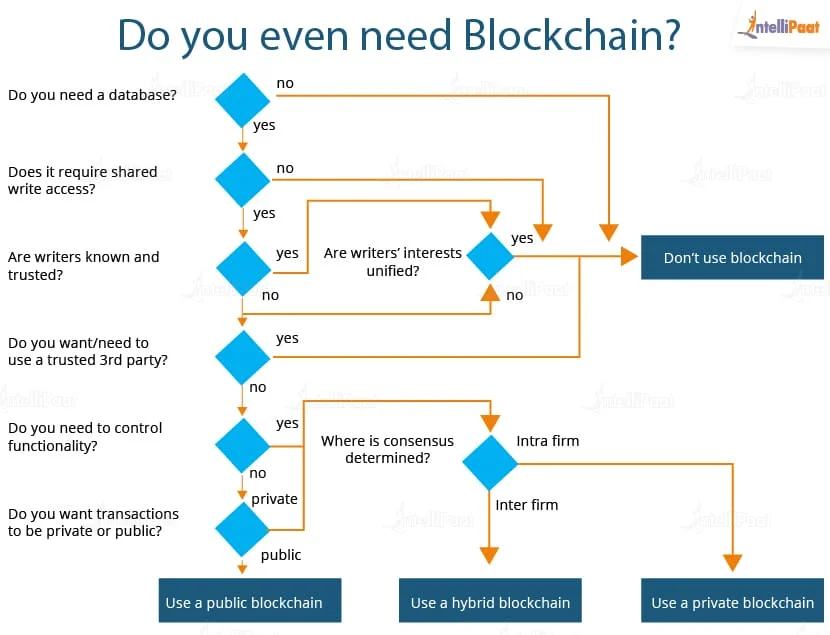Types of Blockchain
Choosing a Blockchain
Public Blockchain
- No permission is required to enter and perform transactions.
- Lacks a central entity overseeing the network, making it tamper-proof by any single individual.
- Examples include cryptocurrencies like Ethereum, Bitcoin, and Litecoin.
Private Blockchain
- Also known as permissioned blockchain.
- Managed by specific entities within an organization that control access and can revoke permissions.
- Commonly used in supply chain management to ensure that sensitive information remains confidential to the team.
Hybrid Blockchain
- Combines features of both public and private blockchains.
- Public nodes allow anyone to join and participate in the network.
- Private nodes verify and validate transactions, controlled by specific organizations or individuals.
- This setup enables faster transaction processing while enhancing privacy and security.
- Public nodes provide decentralization and transparency, preventing any single entity from monopolizing control.
- Participants can determine who can join the blockchain and which transactions are accessible to the public.
